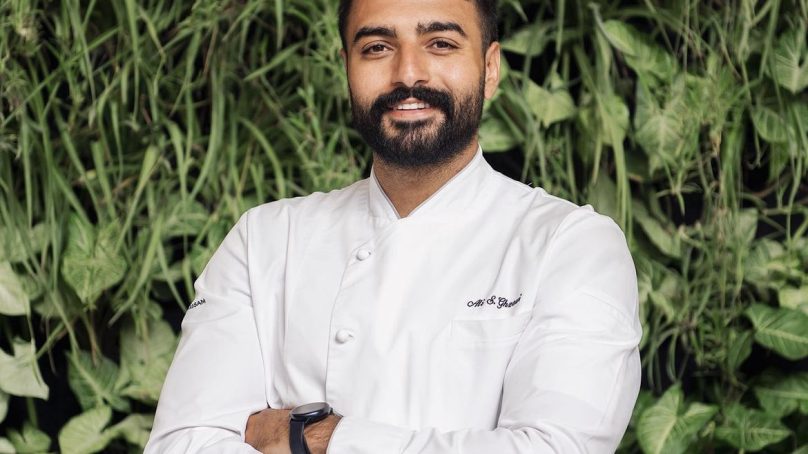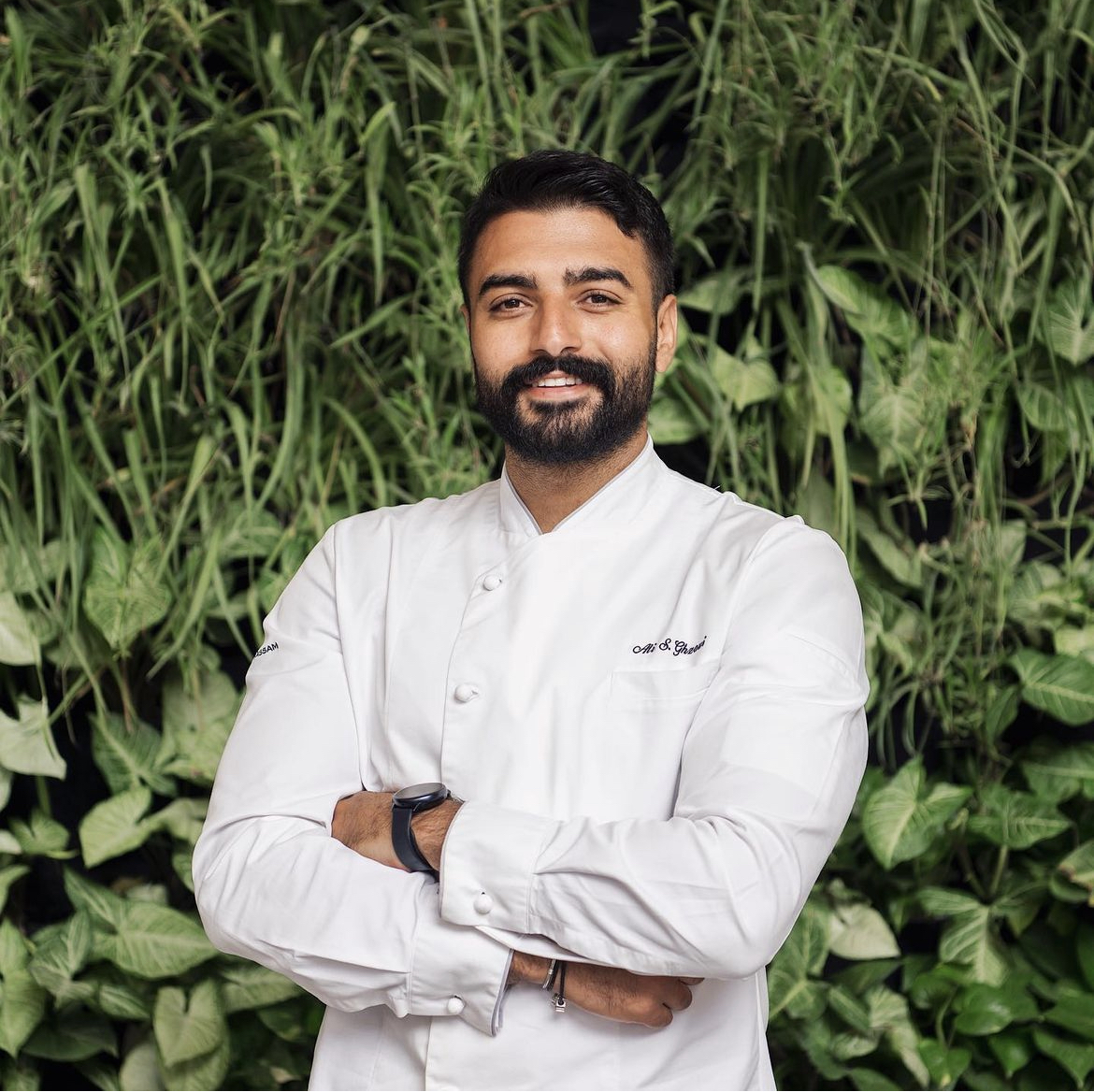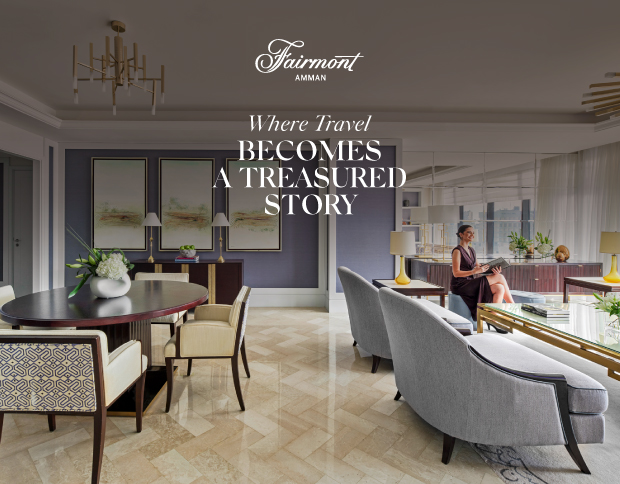Discover how visionary Ali Ghzawi, chef patron of Alee restaurant, is reshaping Jordan’s culinary identity by blending heritage, innovation and culture to place Amman on the world food map.
What does it mean to you to put Jordan on the global culinary map?
Putting Jordan on the global culinary map goes beyond trends; it’s about reclaiming identity and voicing a long-silenced cultural narrative. For me, this vision began with Alee, a restaurant created not just to serve food but to transmit our collective heritage. Specifically, it tells the story of Amman, a city shaped by history, migration, memory and the layered spirit of its people. However, the real challenge lay in redefining Jordanian cuisine not as something static but as vibrant, diverse and constantly evolving. Furthermore, people crave clear culinary categories: fine dining, casual, traditional or modern; but I’ve always resisted labels to pursue something far more meaningful. Instead, I focused on crafting experiences that feel personal, rooted in culture, guided by memory and elevated by imagination at every turn.
Jordanian cuisine is rich, diverse and underrepresented. Why do you think now is the moment to change that and how are you leading the shift?
Now is the moment because we no longer seek permission; a new generation of creators is confidently shaping the future. Specifically, this generation includes chefs, storytellers, farmers, producers and creatives grounded deeply in their origins yet fearless forward. Furthermore, I am leading this shift by building systems beyond restaurants to foster sustainable growth and cultural innovation. Alee represents just the beginning, followed by culinary education initiatives and innovative restaurants reinterpreting regional food unexpectedly. Importantly, I refuse to export clichés about Jordanian cuisine; instead, I want the world to experience its true depth. Ultimately, I create spaces where creativity and heritage coexist harmoniously, empowering both to thrive without competing for attention.
Your work constantly plays with memory, identity and modern expression. How do you reinvent tradition without losing its soul?
I see tradition as a foundation for growth, never a fence that limits creativity or confines culinary exploration and expression. At Alee, working with ingredients like zaatar, sumac, shatta, bulgur or marjoram, I ask deeper questions: “What emotion does this carry? What story does it share about our identity and shared memory?” Then I build everything around that feeling; texture, technique and presentation evolve while the story remains sacred and true. To inspire the next generation, I don’t lecture on heritage but invite them to experience it firsthand in kitchens. They see how powerful cooking their grandmother’s dishes becomes when flavors reflect both the past and their own unique voice. This is how tradition stays alive by breathing freely, adapting naturally and embracing change while honoring its roots forever.
You’ve said before that food is storytelling. What story are you telling the world about Jordan and what do you hope they understand through your food?
I’m telling Amman’s story as a vibrant cultural crossroad where Circassian, Armenian, Druze, Kurds and Jordanians create shared culinary language. Moreover, I want people to understand that Jordanian food isn’t static or singular but rich with depth and creativity. It goes beyond mansaf and hummus; it embodies generosity, resilience and a constantly evolving culinary identity that invites discovery. When guests dine at Alee, I want them to say: “I’ve never tasted this before, yet it feels like home.” Indeed, that is the power of food. It breaks down barriers and connects people beyond typical tourism or surface-level introductions. Ultimately, a single bite can introduce Jordan’s true essence far more deeply than any conventional tourism campaign ever could.
Being recognized by 50 Best Restaurants is a personal milestone, but what legacy are you trying to leave behind in Jordan and beyond?
Recognition matters deeply, not for ego but for creating lasting impact and changing how the world views Jordan’s culinary scene. When we reached number 13 in 50 Best Restaurants, it represented not only me but also Jordan’s growing global reputation. That achievement shifted perceptions widely, opening doors and inspiring pride across the country and the entire region’s food community. However, for me, legacy is never about awards but about building infrastructure, fostering mindset and inspiring strong belief. It means mentoring future chefs, documenting disappearing food memories in books and launching concepts designed to scale regionally. Ultimately, I am not here only to cook. I am committed to building an ecosystem that transforms Arab food culture globally.
If you had to invite the world to dinner in Amman, what would you serve and what would you say?
I’d serve a table filled with striking contrasts: fermented burned butter labne paired with honey shatta oil’s sweetness. Next, sujuk-crusted fish accompanied by tahini corn offers bold flavors layered thoughtfully and presented with culinary precision and care. Then, a burned onion hummus, smoky and unfamiliar, followed by El Shayeb dumpling with warm shanina and fresh mint. Finally, something your grandmother might recognize but plated beautifully, like a carefully crafted piece of edible art on display. And I’d warmly say: “Welcome to Amman. This is not a food museum but a living, breathing memory. Taste it without assumptions, savor deeply, and leave filled with curiosity and an invitation to stay a while longer. Because here, we feed you thoughtfully, surprise you creatively and welcome you warmly to experience our evolving culinary story.”










